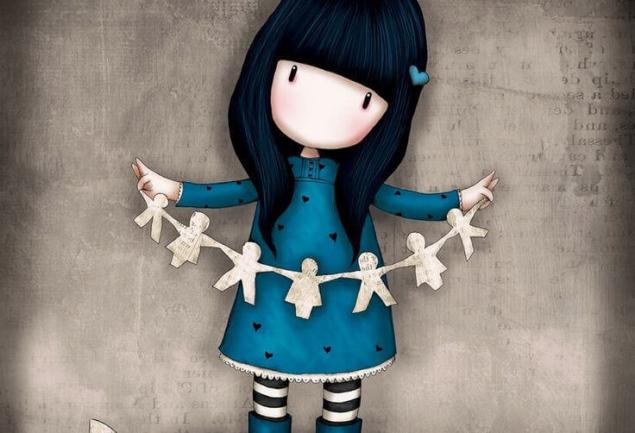680
How to raise emotional intelligence in children: the 3 keys to success
Although most of us know the concept of Daniel Golman defining emotional intelligence, is to indicate that this approach appeared in the 40-ies.
Authors such as Edward L. Thorndike and David Wechsler realized that intelligence is more than just our ability to reason or perceive, and much more than math or language skills.
There are psychological aspects of a person that cannot be measured by tests, but they can play a much more important role in our daily life.

To be able to manage your anger, to understand the cause of our sorrow, it is better to communicate with people around us, and to set stronger, happier relationships... All this is what is known as emotional intelligence.
Undoubtedly, in the near future, all educational programs will include mechanisms that will help to teach children to be emotionally competent.
Until then, while emotional intelligence is not as important a subject as mathematics, stands alone to teach our children this art, this coming from the heart of wisdom, which each of us must possess in perfection.
Today in our article we offer you 3 keys to ensure that you could put this into practice with their children.
The key is to educate their children emotional intelligence
Emotional intelligence can be taught. In fact, no matter how old you are, the pillars that define it and are learning every day to become more capable and, of course, happy.
As for our children, the sooner we start training, the better.
Thus, they will learn concepts and skills in a natural way, to make it easier to adapt to all social and personal situations that will face them in the coming years.
For example, this is a very successful way to prevent the situation, when our children become the subject of ridicule peers (and even victims of bullying). You need to teach them emotional intelligence.
Let's look at some basic strategies.
1. My emotions have names, help me learn
Every sensation, every storm, hysteria, laughter or positive emotion the child his name, and that's what we need to learn as soon as possible.
Your children should know the names of their emotions. For this it is important that you acted as their spiritual guide.

A key component of emotional intelligence is empathy. This is something that may develop over time.
Contribute to the development of empathy in children is our responsibility. You can rely on these strategies:
3. Help me to protect myself, help me to be confident
Another great way to develop emotional intelligence in your children is to talk with them. Confident and Mature communication, where the child learns to apply empathy and to discuss their own feelings to protect themselves.
We must always be on the side of our children to protect them and guide in case of difficulty.
Therefore, it is crucial to offer them the appropriate behavioral strategies that they felt strong, capable and confident in everyday life.
Also interesting: Emotional intelligence: key considerations for development
Emotional intelligence — 5 simple ways to develop
In turn, don't forget to pay attention to any needs and concerns that may arise from your children. This will give them confidence that you are the right person who can be relied upon to which you can always seek advice without fear and to talk about their emotions.
Start to develop emotional intelligence in children today! published
P. S. And remember, just changing your mind - together we change the world! ©
Source: steptohealth.ru/vospityvaem-emotsionalnyj-intellekt-u-detej-3-klyucha-k-uspehu/
Authors such as Edward L. Thorndike and David Wechsler realized that intelligence is more than just our ability to reason or perceive, and much more than math or language skills.
There are psychological aspects of a person that cannot be measured by tests, but they can play a much more important role in our daily life.

To be able to manage your anger, to understand the cause of our sorrow, it is better to communicate with people around us, and to set stronger, happier relationships... All this is what is known as emotional intelligence.
Undoubtedly, in the near future, all educational programs will include mechanisms that will help to teach children to be emotionally competent.
Until then, while emotional intelligence is not as important a subject as mathematics, stands alone to teach our children this art, this coming from the heart of wisdom, which each of us must possess in perfection.
Today in our article we offer you 3 keys to ensure that you could put this into practice with their children.
The key is to educate their children emotional intelligence

Emotional intelligence can be taught. In fact, no matter how old you are, the pillars that define it and are learning every day to become more capable and, of course, happy.
As for our children, the sooner we start training, the better.
Thus, they will learn concepts and skills in a natural way, to make it easier to adapt to all social and personal situations that will face them in the coming years.
For example, this is a very successful way to prevent the situation, when our children become the subject of ridicule peers (and even victims of bullying). You need to teach them emotional intelligence.
Let's look at some basic strategies.
1. My emotions have names, help me learn

Every sensation, every storm, hysteria, laughter or positive emotion the child his name, and that's what we need to learn as soon as possible.
Your children should know the names of their emotions. For this it is important that you acted as their spiritual guide.
- Encourage your children to Express their feelings such phrases as "I feel... because...". This strategy will allow them to talk about such things as, for example, "I feel sad because in high school a friend hurt me."
- Create comfortable conditions, so they could speak freely about their emotions and thoughts about what happened during the day, without feeling the condemnation from our side, because it makes a huge difference.

A key component of emotional intelligence is empathy. This is something that may develop over time.
- In fact, at the age of about 7 or 8 years, children begin to get rid of this "individualism" that is so typical for kids that are sometimes quite selfish.
- Gradually, they begin to defend their friends (peers) and to understand the point of view of others, they are concerned about so that others feel good.
Contribute to the development of empathy in children is our responsibility. You can rely on these strategies:
- Ask your kids: what do you think, how's grandpa today? He is happy or sad, excited?
- Be a role model for your children: let them every day to see in you that person who cares about others, who is able to show compassion, the insight, to stand in the other to understand his point of view.
3. Help me to protect myself, help me to be confident

Another great way to develop emotional intelligence in your children is to talk with them. Confident and Mature communication, where the child learns to apply empathy and to discuss their own feelings to protect themselves.
- It is very important that our children always acted confident. This confidence allows them to protect their rights, their personal boundaries, integrity, and in turn, respect others.
- The child must be able to speak up for myself freely and without fear, to defend their needs, but in turn, knowing that you need to show respect to others.
- A child who feels heard is a child who knows how to listen and, at the same time, to communicate.
We must always be on the side of our children to protect them and guide in case of difficulty.
Therefore, it is crucial to offer them the appropriate behavioral strategies that they felt strong, capable and confident in everyday life.
Also interesting: Emotional intelligence: key considerations for development
Emotional intelligence — 5 simple ways to develop
In turn, don't forget to pay attention to any needs and concerns that may arise from your children. This will give them confidence that you are the right person who can be relied upon to which you can always seek advice without fear and to talk about their emotions.
Start to develop emotional intelligence in children today! published
P. S. And remember, just changing your mind - together we change the world! ©
Source: steptohealth.ru/vospityvaem-emotsionalnyj-intellekt-u-detej-3-klyucha-k-uspehu/
The commandments of the titans: WHAT the most successful people do every day
Why Zelenka is not used anywhere in the world, except CIS?























